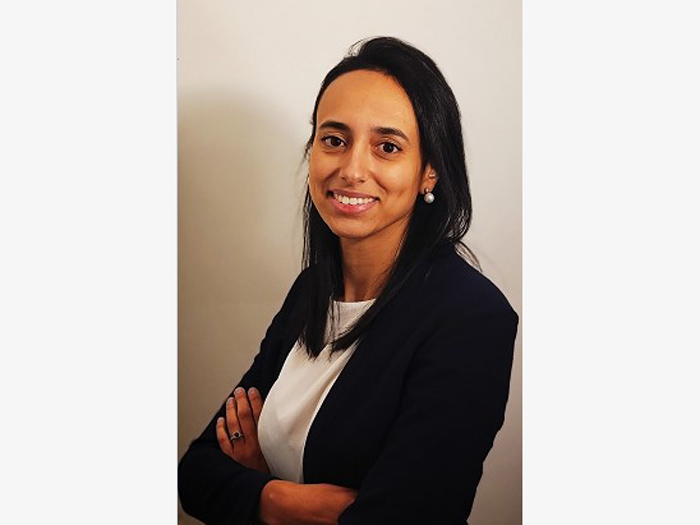
'To work in the AML field, you have to want to make a difference'
 Having a strong sense of ethics is important for CPAs looking to join the fight against money laundering (Getty Images/ Pixdeluxe)
Having a strong sense of ethics is important for CPAs looking to join the fight against money laundering (Getty Images/ Pixdeluxe)
Financial crime is an age-old problem, and it shows no signs of going away anytime soon. Recently, for example, 78 per cent of global financial institutions reported they are concerned about their ability to respond to emerging fraud threats quickly and effectively.
Fortunately, CPAs are well placed to specialize in the fight against money laundering and other forms of financial crime. To find out what it takes to get started in the field, we spoke to CPA Marie-Andrée Malo-Mongeau, an expert with a decade of experience at Deloitte and CIBC. She is now a senior director, commerce solutions at CIBC and remains a strong advocate for the fight against financial crimes.
CPA CANADA: How do you become an anti-money laundering specialist?
Marie-Andrée Malo-Mongeau (MM): Once you’ve obtained your CPA designation, you should complete a course either through one of the universities that offers such training or by completing the requirements for the Certified in Financial Forensics credential offered by CPA Canada in association with the American Institute of Certified Public Accountants (AICPA). You can also complete training through an organization such as the Association of Certified Financial Crime Specialists (ACFCS), the Association of Certified Anti-Money Laundering Specialists (ACAMS) or the Association of Certified Fraud Examiners (ACFE).
Later, you can choose to complete a certificate in a particular field, such as cryptocurrencies, human trafficking, animal trafficking, gaming and casinos, cybercrime or terrorism.
Lastly, you need to keep up to date by earning continuing professional development (CPD) hours in the area.
CPA CANADA: Is the industry growing? Who are the potential employers?
MM: Demand for AML specialists is growing exponentially—especially since, globally speaking, Canada wants to be a country that actively combats money laundering. In recent years the federal government has been updating its regime by working to establish a pan-Canadian registry of beneficial ownership, among many other measures. The Cullen commission report also brought new attention to the area.
Among the main employers for AML specialists are accounting firms, which offer AML consulting services, and financial service institutions, which need to have many risk identification policies in place. FINTRAC, Crown corporations such as Loto-Québec and the Ontario Lottery and Gaming Corporation, other government agencies and private companies also offer employment opportunities.
Current regulations under the Proceeds of Crime (Money Laundering) and Terrorist Financing Act (PCMLTFA) now apply to more companies operating in the field of payment and related services, including fintechs which previously had no such obligations.
CPA CANADA: Are CPAs well positioned to work in this field?
MM: Absolutely, because there are various courses that CPAs take as part of their training that give them an edge. CPAs are familiar with issues relating to financial systems, IT systems, cash flow, strategic planning, control measures and performance measures.
CPAs are also highly adaptable and accustomed to interpreting regulations and standards. This makes it easy to acquire the additional training needed to stand out from the crowd. There are many career opportunities for CPAs in AML.
CPA CANADA: What does a typical work day look like?
MM: It all depends on your area of interest and expertise.
For example, if you are just beginning your career, you might be able to take a position such as an investigator at a bank. In that role, you would be responsible for conducting an investigation when a detection system spots a potentially unusual transaction. Through your investigation you would be looking to answer a number of questions: Is the transaction normal or not? Can it be explained? Does is align with the person’s financial profile? What can we learn from their money movements? Should a report be made to the Financial Transactions and Reports Analysis Centre of Canada (FINTRAC)? And so on. You could also start your career in consulting and accounting firms, as I did. They normally advise clients subject to regulations on transformation, policy and operational activities.
If you move into an AML role in the financial services, technology or consulting industries in mid-career or later, you will benefit from your earlier experience and can move into leadership or transformation roles. Strategy development, policy interpretation, a new system implementation, leading a digital transformation or leveraging automation or AI to enhance detection are just a few examples.
 Marie-Andrée Malo-Mongeau says there are many career opportunities for CPAs in the AML field (Photo provided)
Marie-Andrée Malo-Mongeau says there are many career opportunities for CPAs in the AML field (Photo provided)
MM: Whether you decide to pursue a career in the financial services industry, a consulting firm or the public sector, certain core qualities are required. You have to be creative and adaptable. Based on the various challenges and trends you may encounter, the way forward might not always be evident, but you need to be able to find a solution to meet regulations and do what is right for society. You also need to vigilant and curious, because those who engage in financial crime are always innovating.
Good judgment and communication skills are also a must for working in the field because if you make a false assumption or misinterpret certain transactions or do not provide the right information to your leadership team, this could have far-reaching consequences. Finally, having a strong sense of ethics and professional skepticism is important, as we sometimes investigate questionable practices.
Based on the specific role you want to pursue, other qualities and competencies may be required—and as a CPA you no doubt possess them.
CPA CANADA: You are passionate about this field. Is that another prerequisite?
MM: To work in AML, you have to want to make a difference. You have to care about social issues and want to be part of the solution.
This also means people in the field are eager to share their knowledge. They enjoy networking, mentoring and sponsorship, and many enjoy talking about their specialty. So don’t hesitate to reach out for advice.
They will be able to tell you where to start, what’s likely to appeal to you based on your profile, and how to make the most of your cross-functional skills.
AN ONGOING EFFORT
Check out CPA Canada’s anti-money laundering resources and AML policy page. View our free webinar (one CPD hour) on changes to the anti-money laundering (AML) and anti-terrorist financing (ATF) rules, and consider attending this two-hour course on anti-money laundering and ethics (two CPD hours).
Also, consider the Certified in Financial Forensics (CFF) credential offered by CPA Canada in association with the AICPA, and join us for the AICPA & CIMA Forensic and Valuation Services Conference 2023 (Las Vegas, Nov. 6-8).